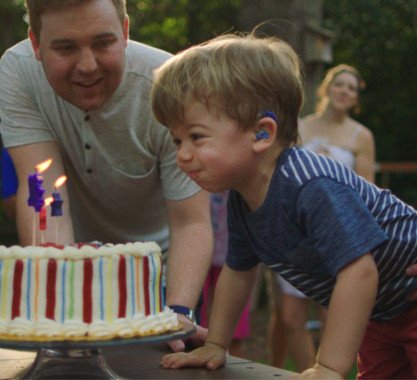Project Alive Welcomes Seven Members to the Scientific Advisory Board
August 1, 2023
Project Alive, a Hunter syndrome research and advocacy non-profit organization, announces the addition of the Scientific Advisory Board. This board will review all research grant applications for the organization and provide valuable insight to medical and scientific news related to Hunter syndrome. These seven clinicians and researchers are well known for their commitment to MPS treatment and research and have worked closely with the MPS II community for years. Their addition to the organization will allow for an expansion of Project Alive’s commitment towards MPS II research.
Project Alive recently announced the launch of the research grants program that will support a variety of research that will benefit the MPS II community. They have committed to spending $250,000 in research grants for year one. Thus far, a $50,000 single year grant has been awarded for a project titled “Investigating the Transition from Pediatric to Adult Care in Patients with Mucopolysaccharidosis (MPS),” by principal investigator, Nathan Grant.
Parties interested in applying for a research grant can visit www.projectalive.org/grant-inquiries.
https://projectalive.org/about/our-team
“Project Alive was originally founded to find a cure for Hunter syndrome. While we are thrilled to see many clinical trials actively enrolling for new potential treatments, there is still so much to be done in terms of research. With the launch of our new research grants program, we hope to invest in the future of MPS II. I could not be more pleased with the seven members of our Scientific Advisory Board. They are all pillars in the community, and their expertise will be critical for the success of this program,” said Kristin McKay, Executive Director, Project Alive.
New Scientific Advisory Board Members Join Project Alive
Barbara K. Burton, MD
Dr. Barbara K. Burton is a Professor of Pediatrics at the Northwestern University Feinberg School of Medicine and an Attending Physician in the Division of Genetics, Birth Defects and Metabolism at the Ann Robert H. Lurie Children Hospital of Chicago where she directs the MPS/ML Treatment Center. She is Board certified in Pediatrics, Clinical Genetics and Clinical Biochemical Genetics. Dr. Burton is an investigator in numerous natural history studies and clinical trials of new therapies for various genetic disorders. She has published over 300 peer-reviewed articles, 50 chapters in books and is an editor of two textbooks. Dr. Burton is active in professional organizations and is a Past-President of the Society for Inherited Metabolic Disorders and the Chicago Pediatric Society. She served for four years as a member of the Secretary Advisory Committee on Heritable Disorders in Infants and Children, the federal advisory committee that makes recommendations regarding newborn screening in the US. She is an Emeritus Member of the Board of Directors of the Greater Chicago Area March of Dimes and received a Lifetime Achievement Award from the March of Dimes in 2018. She is a member of the Scientific Advisory Board of the National MPS Society and of Project Alive and serves on the medical advisory board of a number of other patient advocacy organizations.
Julie Eisengart, PhD
Julie Eisengart is an Associate Professor of Pediatrics at the University of Minnesota Medical School and the Director of the Neurodevelopmental Program in Rare Disease. As a pediatric neuropsychologist, she specializes in rare neurodegenerative disorders of childhood, evaluating the functional course of disease and response to therapy. Her research has focused on the MPS disorders, particularly examining outcomes of early diagnosis, newborn screening, and novel therapies. Her research extends to defining and measuring aspects of disease that are under-represented in the clinical and research communities but are important and meaningful to patients and families, such as neurobehavioral symptoms and the family lived experience. Dr. Eisengart has been a principal or co-investigator, and research mentor, on a number of observational studies or clinical trials for MPS and other rare diseases. She has served on the Technical Expert Panel for the U.S. Secretary of Health and Human Services to consider the addition of MPS II to the Recommended Uniform Screening Panel (RUSP), and on the Working Group for the Minnesota Department of Health to implement newborn screening for MPS I and other rare disorders. Presently she sits on the National Organization for Rare Disorders (NORD)Training Work Group and the Critical Path Institute Rare Disease Clinical Outcome Assessment Consortium.
Matthew Ellinwood, PhD
Dr. Ellinwood has over two decades of research experience with the mucopolysaccharidosis and mucolipidosis disorders. He is the Chief Scientific Officer at the National MPS Society, where he guides research to benefit the patient community. He has a long association with the Society beginning as a Scientific Advisory Board member. He is a Professor Emeritus (Iowa State University), where he conducted basic and applied research on the neuropathic MPSs. He is experienced in preclinical hematopoietic stem cell transplantation, intravenous enzyme therapy, intracisternal enzyme therapy, intraventricular enzyme therapy, systemic intravenous AAV based gene therapy, and intraparenchymal CNS directed AAV based therapy.
Paul R. Harmatz, MD
Paul R. Harmatz, MD, is Professor in Residence, Department of Pediatrics, University of California San Francisco and UCSF Benioff Children’s Hospital Oakland. He is the Medical Director of the Pediatric Clinical Research Program in Mucopolysaccharidoses (MPS) and Related Disorders. Dr. Harmatz completed his Pediatric internship and residency training at Harbor-UCLA Medical Center. Following a clinical and research fellowship in Pediatric Gastroenterology and Nutrition at Massachusetts General Hospital, he remained in Boston until 1992 as faculty in Pediatrics at Harvard Medical School. During the last 20 years, Dr. Harmatz has participated in clinical trials with MPS I, MPS II, IIIa, IIIb, IVa, VI, VII, and has managed clinical care for patients with MPS living in northern California.
Elizabeth Jalazo, MD
Dr. Elizabeth Jalazo joined the Department of Pediatrics on January 3, 2022. She received her BS in Biology from UNC Chapel Hill in 2005 and her medical degree from Wake Forest University School of Medicine in 2011. Dr. Jalazo completed her pediatric residency at the Johns Hopkins Children’s Center in 2014 and a fellowship in Academic Pediatrics in 2015. In 2021, she completed her fellowship in Medical Genetics at UNC Chapel Hill.
She is a principal investigator in several MPS clinical trials and an integral member of the Muenzer MPS Research and Treatment Center.
Joseph Muenzer, MD, PhD
BRYSON DISTINGUISHED PROFESSOR OF PEDIATRICS
Dr. Muenzer is the Director of the Muenzer MPS Research and Treatment Center. He is a pediatric geneticist and researcher, with special interest in congenital metabolic disorders such as Mucopolysaccharidoses (MPS). His research includes:
Progressive brain disease in children with MPS II, also known as Hunter Syndrome.
Developing new avenues of treatment in children with MPS, including clinical trials to test new forms of intravenous enzyme replacement therapy as well as alternative therapies, such as gene therapy and intrathecal drug delivery devices.
Raymond Wang, MD
Raymond Wang, M.D. is the Director of the Multidisciplinary Lysosomal Storage Disorder Program at CHOC and a board certified clinical geneticist and biochemical genetics specialist. Dr. Wang is aware of the challenges faced by patients and families with rare diseases such as lysosomal storage disorders. He has committed the program to provide:
Treatment for the lysosomal disorders that have existing therapies, access to investigational treatment for patients with disorders that currently have no approved / effective therapy, and translational research vital to development of “next generation” treatments and cures for lysosomal storage disorder patients.
As an undergraduate, Dr. Wang attended Stanford University where he was a member of the Phi Beta Kappa honors society and graduated with a bachelor’s degree with Honors and Distinction in Biological Sciences. He earned his medical degree from the University of California, Los Angeles (UCLA) where he was a member of the Alpha Omega Alpha honors society. He completed his internship and residency in medical genetics and pediatrics at Cedars-Sinai Medical Center where he served as chief resident in his final year of training. Dr. Wang completed his fellowship in biochemical genetics at the UCLA Intercampus Medical Genetics Program.
Have something you think we should share? Contact us at 313-31-ALIVE (313-312-5483) or press@projectalive.org.






